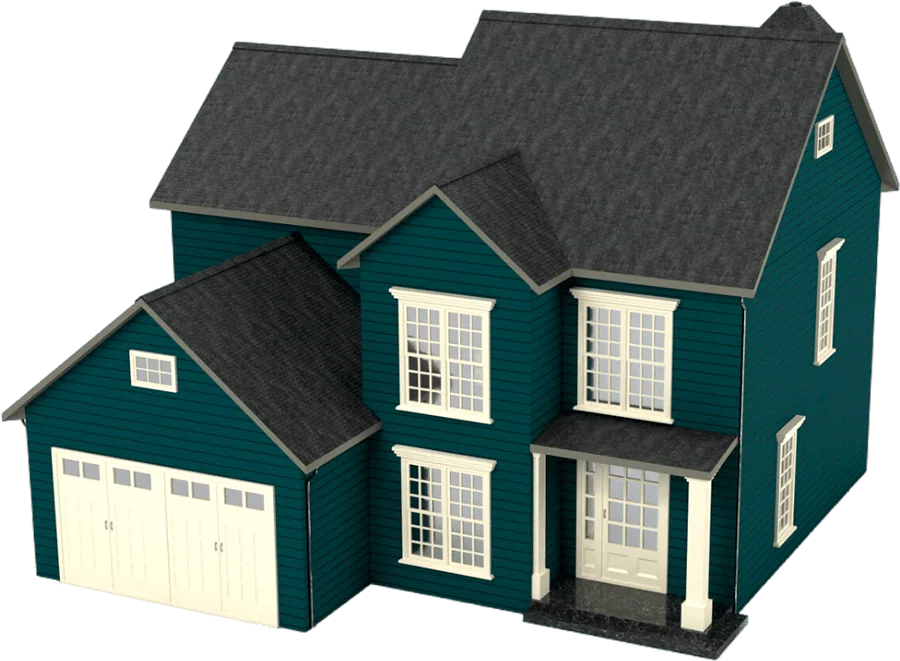Let Us Turn Your Dream Home Into A Reality
Unlock Flexibility with an Adjustable Rate Mortgage!
Unlock the flexibility of an Adjustable Rate Mortgage (ARM) with Ebenezer Mortgage Solutions. Benefit from lower initial payments and customized ARM options that fit your financial goals. Whether you're buying your first home or refinancing, our expert team will guide you to the best rates and terms.
Get started today and see how an ARM can work for you!
Why Choose Ebenezer Mortgage Solutions for Your Adjustable Rate Mortgage?
At Ebenezer Mortgage Solutions, we understand that choosing the right mortgage is a significant decision, especially when it comes to Adjustable Rate Mortgages (ARMs). Our expertise in ARMs ensures you receive tailored advice and a mortgage solution that aligns with your financial goals and future plans. Why Work with Ebenezer Mortgage Solutions?
Deep Local Expertise
As a trusted mortgage broker in the Tampa Bay area, we have a deep understanding of the local real estate market and a strong network of lenders. This allows us to secure competitive ARM rates and terms that are specifically suited to your unique needs, whether you're buying a home or refinancing.
Personalized ARM Solutions
We don’t believe in one-size-fits-all mortgages. Our team takes the time to understand your financial situation and future plans, offering a variety of ARM options, including 5/1, 7/1, and 10/1 ARMs, as well as more specialized products like Interest-Only and Payment-Option ARMs. We help you choose the best ARM type for your lifestyle, ensuring flexibility and potential savings.
Transparent and Trustworthy Guidance
Navigating the complexities of an ARM can be daunting, but we’re here to make it simple. Our mortgage experts provide clear, transparent guidance throughout the entire process, explaining every detail of how your ARM will work, including rate caps, adjustment periods, and potential risks. We ensure you’re fully informed before making any decisions.
Commitment to Long-Term Success
Our relationship with you doesn’t end at closing. We continue to offer support and advice as you navigate your mortgage, including opportunities for refinancing or adjusting your loan as your financial needs evolve. We're dedicated to helping you maximize the benefits of your ARM while minimizing risks.
What is an Adjustable Rate Mortgage (ARM)?
An Adjustable Rate Mortgage (ARM) is a home loan with an interest rate that can change over time, unlike a fixed-rate mortgage where the interest stays the same. Unlike fixed-rate mortgages, which have a constant interest rate for the entire term of the home loan, ARMs feature a fixed introductory rate. After this period, the rate adjusts at regular intervals, causing monthly payments to fluctuate with market conditions.
Types of Adjustable Rate Mortgages (ARMs) Include
- 5/1 ARM
- 7/1 ARM
- 10/1 ARM
- Interest-Only ARM
- Payment-Option ARM

Ready to Explore Your ARM Options?
Contact Ebenezer Mortgage Solutions today at (813) 284-4027 or click below to get started. Let us guide you through securing a flexible mortgage solution that adapts to your life and helps you achieve your financial goals.

Adjustable Rate Mortgage Requirements
Credit Score
A score of 620+ is generally needed, with 740+ securing more favorable rates.
Loan Size
Varies based on lender guidelines and market conditions, with options for jumbo ARMs.
Proof of Income
Necessary for verification, including pay stubs, tax returns, and W-2s.
Private Mortgage Insurance (PMI)
Required if the down payment is less than 20%. It can be canceled when the loan-to-value ratio reaches 78%.
Assets
Documentation for down payment, closing costs, and reserves is crucial.
Debt-to-Income (DTI) Ratio
Generally 43% or lower, though some lenders allow higher ratios with compensating factors.
Down Payment
Varies by loan type and borrower profile; larger down payments may be required for riskier loans.
Employment Verification
Stable employment is necessary, with additional documentation needed for self-employed borrowers.
Types of Adjustable Rate Mortgages (ARMs)
5-Year ARM
This home loan features a fixed interest rate for the first five years of the loan term. After this initial period, the interest rate adjusts annually based on market conditions. This type of ARM can be beneficial if you plan to stay in your home for a shorter time, as it typically offers a lower initial rate compared to fixed-rate mortgages.
7-Year ARM
With a 7-year ARM, you enjoy a fixed interest rate for the first seven years. Following this period, the interest rate adjusts annually. This is a good choice if you plan to stay in your home for a few years.
10-Year ARM
The 10-year ARM provides a fixed interest rate for the first ten years, with annual adjustments starting afterward. This type is suitable for individuals who prefer a longer period of rate stability before adjustments and plan to remain in their homes for an extended time.
Interest-Only ARM
An Interest-Only ARM allows you to pay only the interest for a specified period, usually the first 5, 7, or 10 years. This option is often chosen by borrowers managing multiple properties or those with variable income, as it provides lower initial payments.
Payment-Option ARM
The Payment-Option ARM provides flexibility by offering multiple payment options each month, including interest-only payments, minimum payments, and fully amortizing payments. This type of ARM can be useful if your income varies, but it can also lead to payment increases and potential negative amortization if only the minimum payments are made.
Comparing ARM Rates
When comparing ARM rates, it's important to consider the Annual Percentage Rate (APR), which includes the base interest rate, discount points, and any additional fees. Since ARMs typically involve floating interest rates, which can change based on market conditions, it's essential to compare offers from different lenders, including credit unions.
Adjustable Rate Mortgage Rates and Benefits


Lower Initial Rates


Potential for Lower Payments


Caps and Limits


Flexibility
How Ebenezer Mortgage Solutions Can Help You
LET OUR MORTGAGE BROKERS DO THE HARD WORK FOR YOU
AND TURN YOUR DREAM HOME INTO A REALITY
Who May Not Qualify for an Adjustable Rate Mortgage?
ARMs can be a great option for many borrowers, but they may not be suitable for everyone. Here’s a look at who might face challenges in qualifying for an ARM:
Borrowers with Low Credit Scores
A low credit score can signal a higher risk to lenders. Since ARMs involve fluctuations in interest rates, lenders may be more cautious about extending these loans to individuals with lower credit scores.
High Debt-to-Income (DTI) Ratios
Lenders assess your ability to manage monthly payments in relation to your income. A high DTI ratio suggests that a large portion of your income is already committed to debt payments, making it riskier for lenders to approve an ARM that could increase your payments over time.
Recent Financial Hardships
Recent financial difficulties, such as bankruptcy or foreclosure, can negatively impact your ability to qualify for an ARM. These events indicate past challenges with managing finances and may raise concerns about your current financial stability and ability to handle potential rate adjustments.
Unstable or Unpredictable Future Income
If your income is unstable or unpredictable, an ARM may pose significant risks. Since ARMs come with the potential for interest rate increases, borrowers with variable or uncertain income might struggle to keep up with payment fluctuations.
Advantages of a Fixed Rate Home Loan
Lower Introductory Rate
ARMs often offer lower interest rates, which can lead to significant savings early in the loan term.
Potential for Lower Payments
The initial fixed-rate period typically features lower monthly payments.
Caps and Limits
ARMs include rate caps that limit how much the interest rate can increase at each adjustment period and over the life of the loan.
Flexibility
Ideal for those planning to move, sell, or refinance before the adjustable period starts.
How is an Adjustable Rate Mortgage Different from Other Loan Types?
Understanding how ARMs compare to other loan types, such as those offered by the Federal Housing Administration or home equity loans, can help you make an informed decision. A home equity loan offers a fixed interest rate and is secured by the equity in your property, making it a stable alternative to an ARM. Unlike ARMs, which have floating interest rates that can change over time, a home equity loan provides predictable payments, which might be more suitable for those seeking long-term stability. A knowledgeable real estate agent can guide you through these options, ensuring that you find the right mortgage product for your needs. Here’s a look at how ARMs differ from other popular loan options:
ARM vs. FHA Loans
ARMs offer flexibility with adjustable rates that can change over time, potentially leading to lower initial payments. FHA Loan, backed by the Federal Housing Administration, provides stability with fixed rates and often lower down payment requirements. FHA loans are designed to be accessible to a wider range of borrowers, including those with lower credit scores, but do not offer the same flexibility as ARMs.
ARM vs. VA Loans
VA loans, guaranteed by the Veterans Affairs, offer fixed rate options with competitive terms and are available to veterans and active-duty service members. ARMs, on the other hand, may provide lower initial rates but come with the risk of rate increases later. VA loans generally offer more stability throughout the loan term compared to the potential variability of ARMs.
ARM vs. USDA Loans
ARMs provide adjustable rates and flexible terms, which can be advantageous if you anticipate refinancing or moving before the adjustable period begins. Backed by the U.S. Department of Agriculture, USDA Loans, however, are designed for rural and suburban homebuyers and come with specific income and location requirements. They offer fixed rates with benefits such as no down payment but lack the adjustable rate flexibility found in ARMs.
ARM vs. Fixed Rate Mortgage
Fixed-rate mortgages offer consistent monthly payments throughout the loan term, providing stability and predictability with a stable interest rate that doesn’t change. In contrast, Adjustable Rate Mortgages (ARMs) start with a lower initial rate, often fixed for a set period, after which the rate becomes a floating interest rate that adjusts periodically. This can lead to fluctuating payments. While ARMs may offer savings in the early years, fixed-rate mortgages provide long-term payment consistency and protection against rate increases.
The Bottom Line
Adjustable rate mortgages offer lower initial rates and flexibility, making them ideal for those planning to move, refinance, or invest before the adjustable period begins. However, rising interest rates can lead to higher payments, a significant risk compared to the stability of fixed-rate mortgages. To make the best choice, work with a knowledgeable mortgage loan officer who can provide expert advice tailored to your situation. Understanding market trends and getting professional guidance ensures you make a decision that supports your long-term financial health.
Need help with your adjustable rate mortgage application? Our mortgage broker in Tampa is ready to assist you. With our experience and a wide network of lenders, we’ll guide you through a stress-free mortgage process. Call Ebenezer Mortgage Solutions today at (813) 284-4027 to start your journey toward owning your dream home.

Adjustable Rate Mortgage FAQ
Your credit score significantly influences the interest rate you receive on an ARM. A higher credit score can help you qualify for a lower initial interest rate, leading to potential savings over the life of the loan.
A jumbo mortgage is a loan that exceeds the conforming loan limits set by Fannie Mae and Freddie Mac. Yes, jumbo mortgages can be ARMs, but they may have different terms and requirements than standard ARMs.
Refinancing an ARM involves replacing your current mortgage with a new one, potentially with different terms or converting it to a fixed-rate mortgage. This can be a good strategy if interest rates are rising or you want more payment stability.
Negative amortization occurs when your monthly payments are not enough to cover the interest due, causing the loan balance to increase. This can happen with some ARMs, particularly those with payment caps or interest-only periods.


